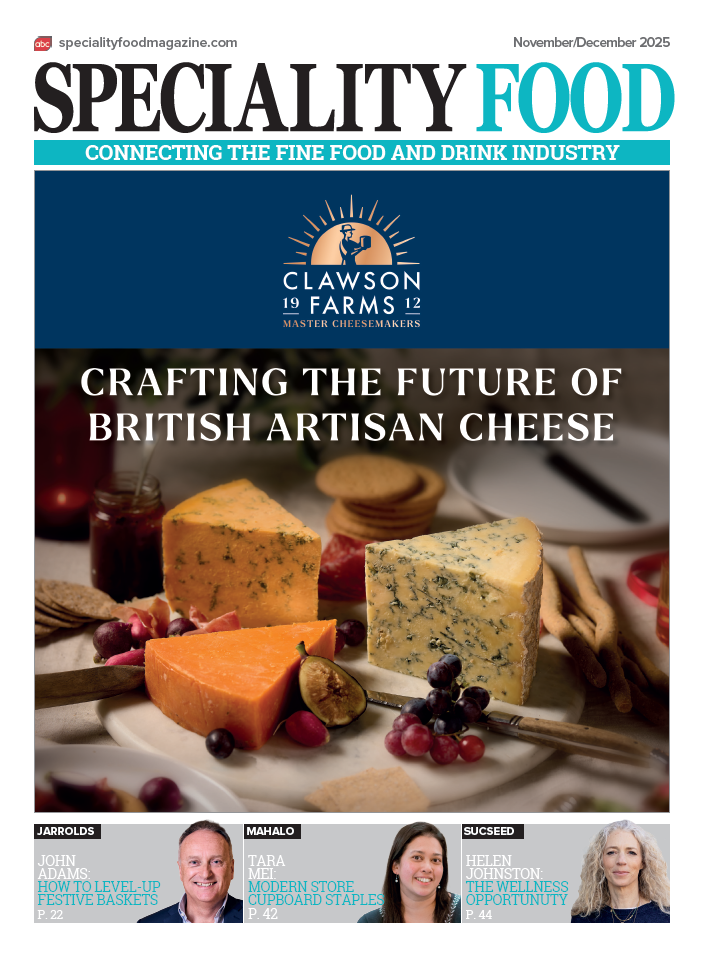“Avoiding the ‘b’ word”

- “Sticky fingers”
- “Everyone’s a winner”
- “Myths and legends of Turophilia”
- “When ‘cheese’ is not cheese”
- “Don’t disrespect the Cheddar”
As a teenager in the early 1970s, prior to my first ‘dinner party’, parental advice didn’t just cover which cutlery to use. I was also briefed to avoid discussion of politics, religion or money. Perhaps that’s why I became a music, and later, a cheese bore. Of course this advice was completely misplaced when I became a student and such subjects were the very stuff of late night debate, over Nescafé and Gingernuts
But do such topics belong in casual conversations with customers in a shop? If we refuse to discuss money we’re not going to continue trading for long, so that needs to be transferred to the ‘acceptable’ list. In a cheese shop, religious discussion is perhaps best limited to the monastic traditions surrounding the affinage of washed rind cheeses. Politics? Ah, there’s a challenge.
I have always taken the view that nailing one’s personal colours to the retail mast is permissible for sporting teams – and maybe, if that’s your thing, reality show contestants – but showing support for a political cause tends to alienate all those of a different hue. Some shops might still be viable if half their customers no longer felt that it was ‘their’ place, but I believe most of us can’t afford the risk.
The current political elephant in the room, mention of which is avoided at all costs, is undoubtedly Brexit. Around these parts I know of only one shop that proclaimed its allegiance to either side: a secondhand bookshop in Bridport which still has ‘Remain’ posters up. I thought it might be shorthand for remaindered stock, but no, they’re happy to foster lively and polarised debate in store. I feel that would run counter to my proclaimed aim of selling more cheese.
Nonetheless, the effect of the Brexit vote will have impact on the cheese world and customers will be asking questions that lead inexorably to that taboo subject. I can skirt round a lot of them by laying the blame at exchange rate shifts – if a punter’s holiday in Tuscany is now costing a lot more in sterling, then they can connect the dots and accept that their lump of Pecorino may cost more, too. British cheese may be more affordable over the channel and overseas as a result of the cheaper pound. That may put some cheeses out of stock, as supply is diverted to new markets – and undoubtedly entrepreneurs starting new cheese dairies or adding equipment will be paying more for that as most kit comes from mainland Europe, adding to their costs – and in time, ours, too.
Where’s the opportunity in these uncertain times? Consumers may be having an attitudinal shift towards British-made produce. If neither the food miles concept, nor the terroir argument managed to lure them towards British cheeses up to now, perhaps jingoism and cost will do the trick in the future. It’s up to us to suggest a domestic alternative when a shopper winces at the new price of the Continental cheese they have purchased for years. June’s British Cheese Awards will celebrate the best of our locally-made cheeses – I have always made a point of looking at the medal winners with a view to stocking them.
On balance I think I’ll still avoid talk of Brexit wherever possible and wait to see what transpires as the drama continues to unfold.
more from Town Crier
-
“Black and White thinking”
08 August 2019 Town CrierLast time around I suggested trumpeting the benefits of the produce we offer, and the importance of conveying its taste and of making each purchase viscerally appealing. -
“We’re a resourceful bunch”
17 May 2019 Town CrierIt’s almost exactly 10 years ago that I sat down to create the first business plan for my cheesemonger. -
“Waxing lyrical”
12 February 2019 Town CrierOn a family holiday to Normandy in 1965, my parents and their adult friends were hugely excited by Livarot and Camembert – seldom seen back home in Hampshire.

